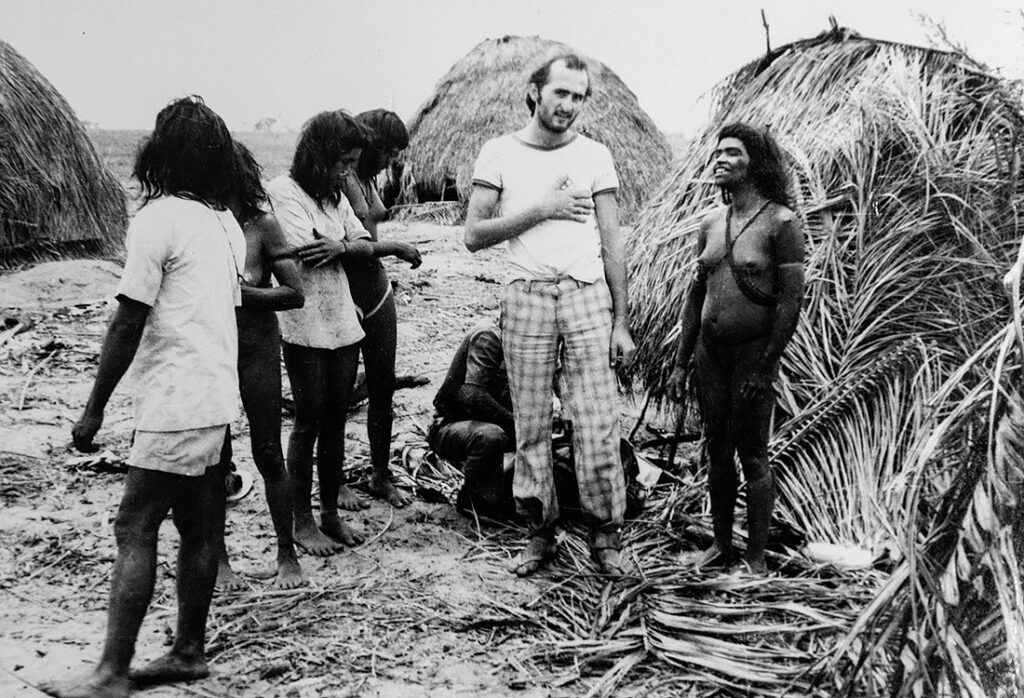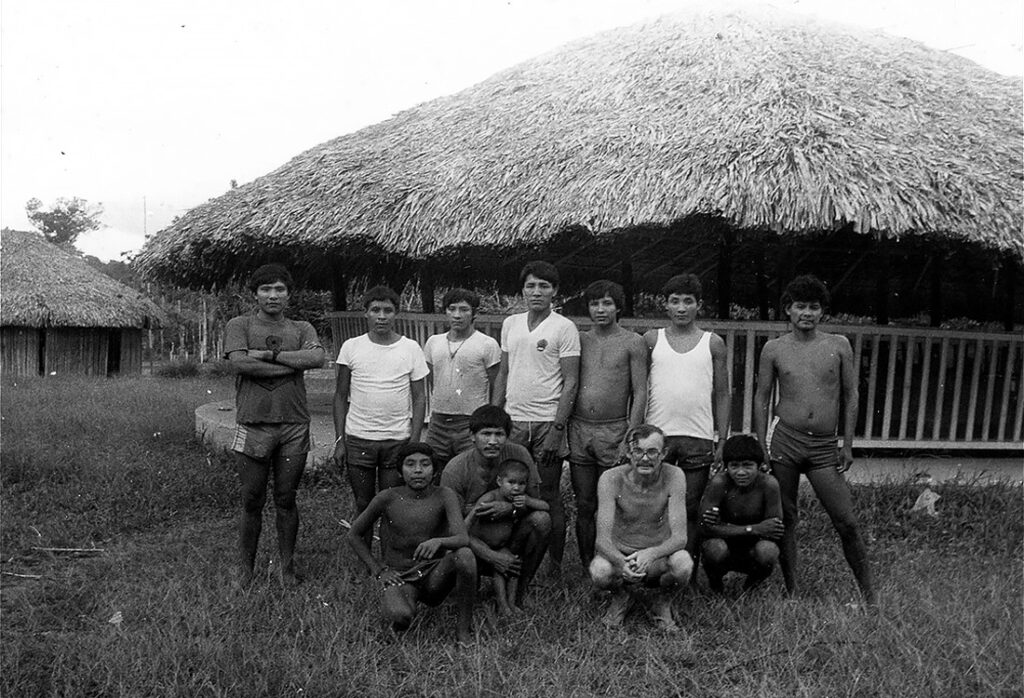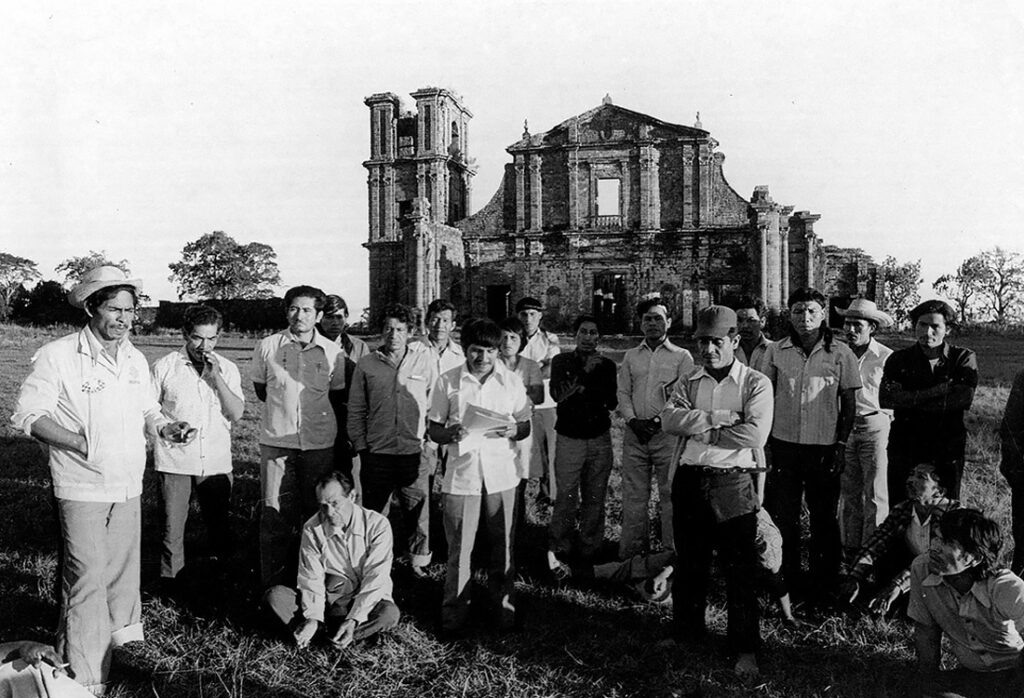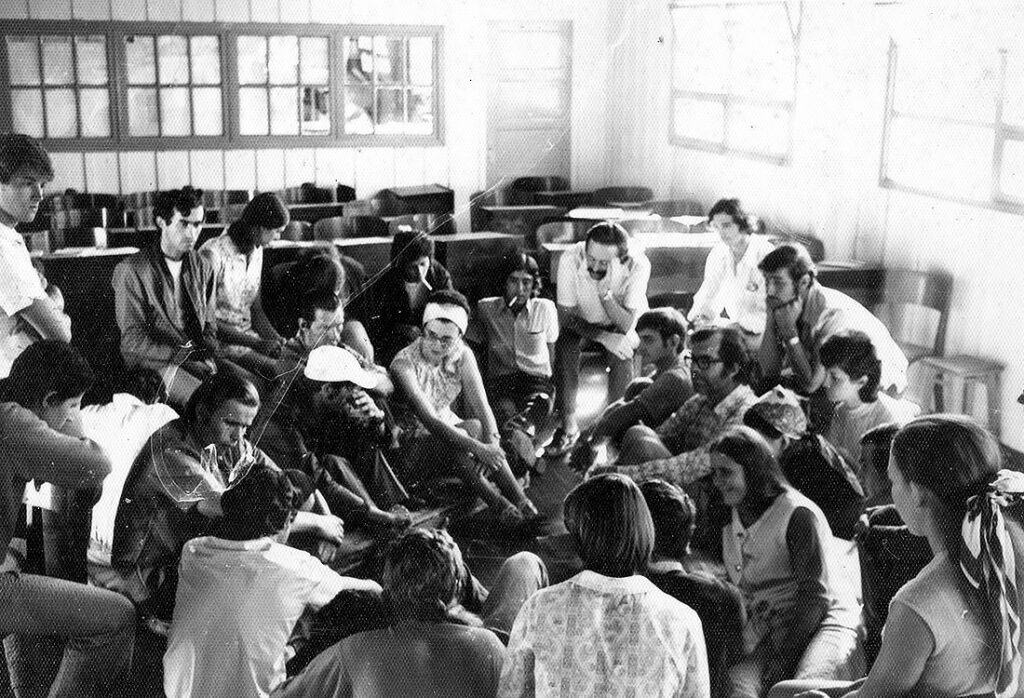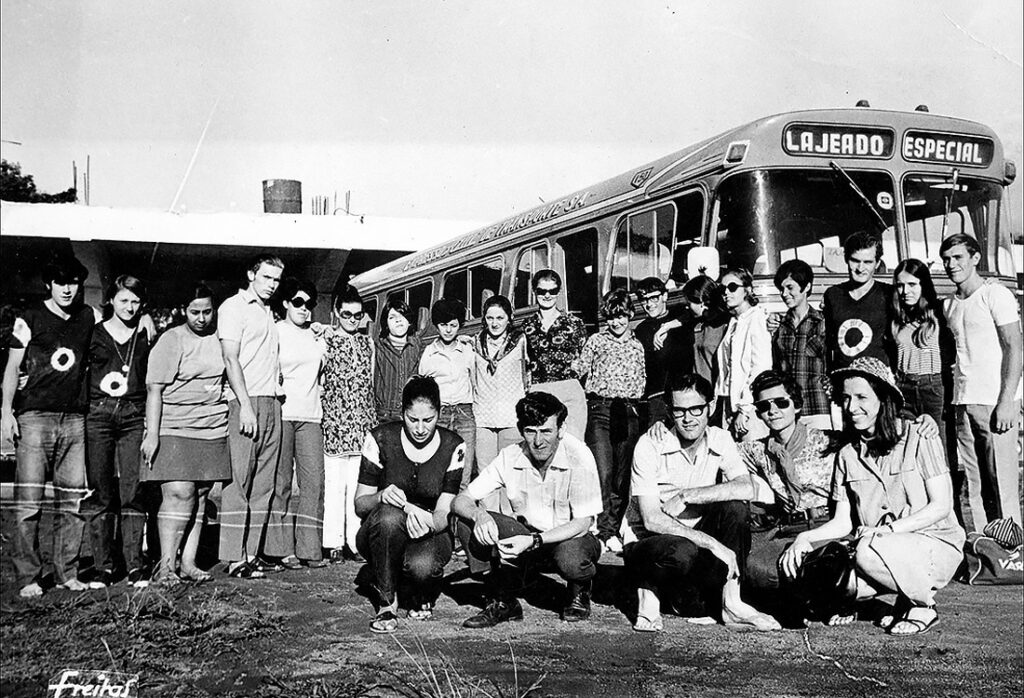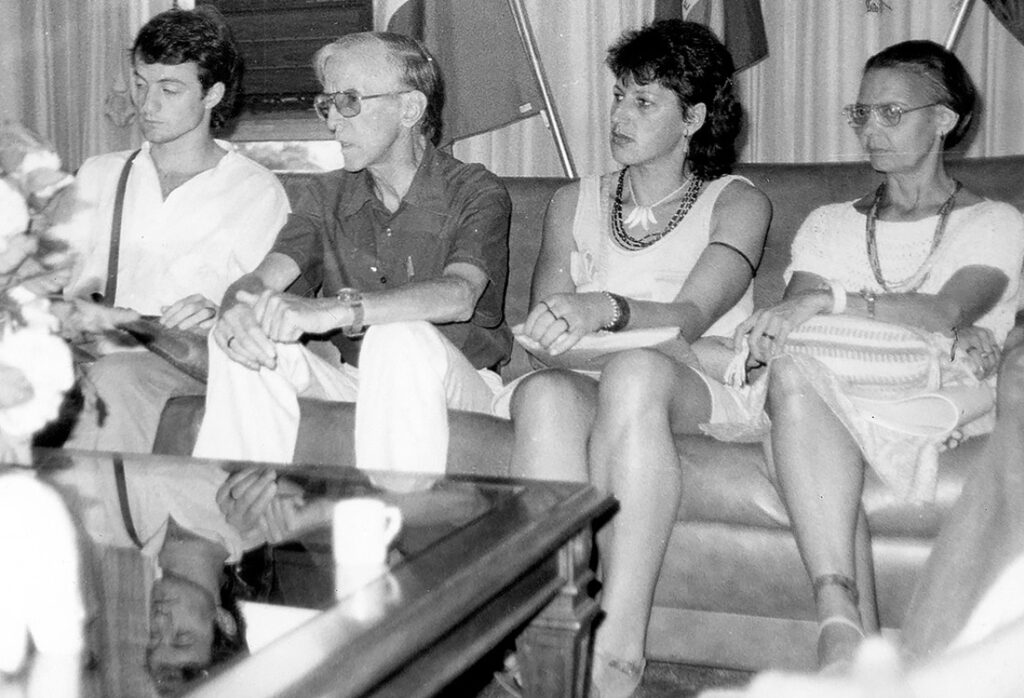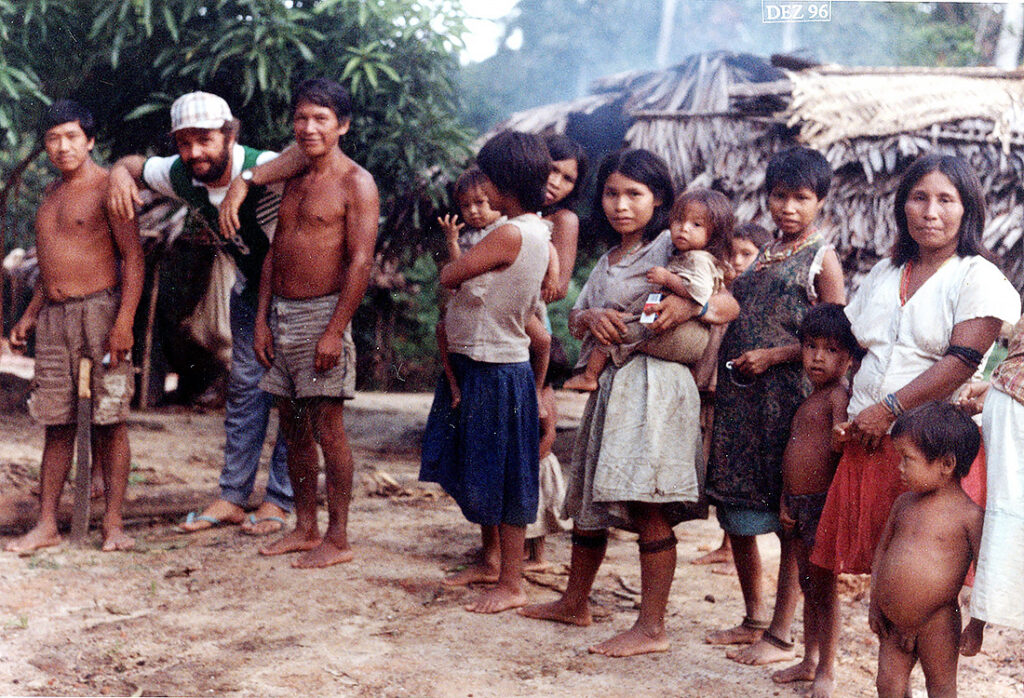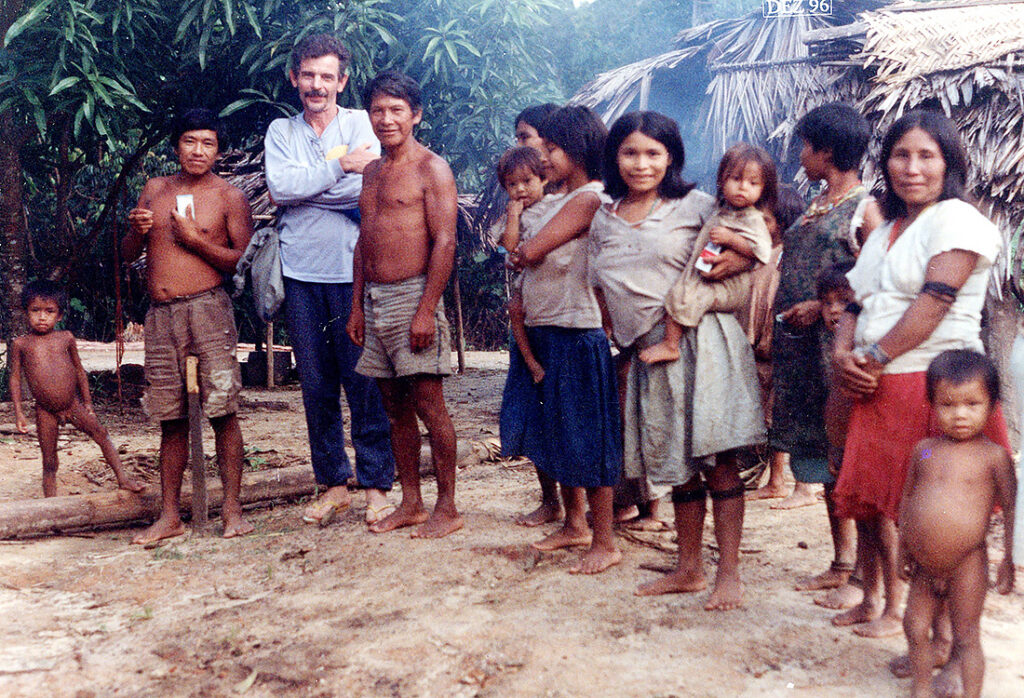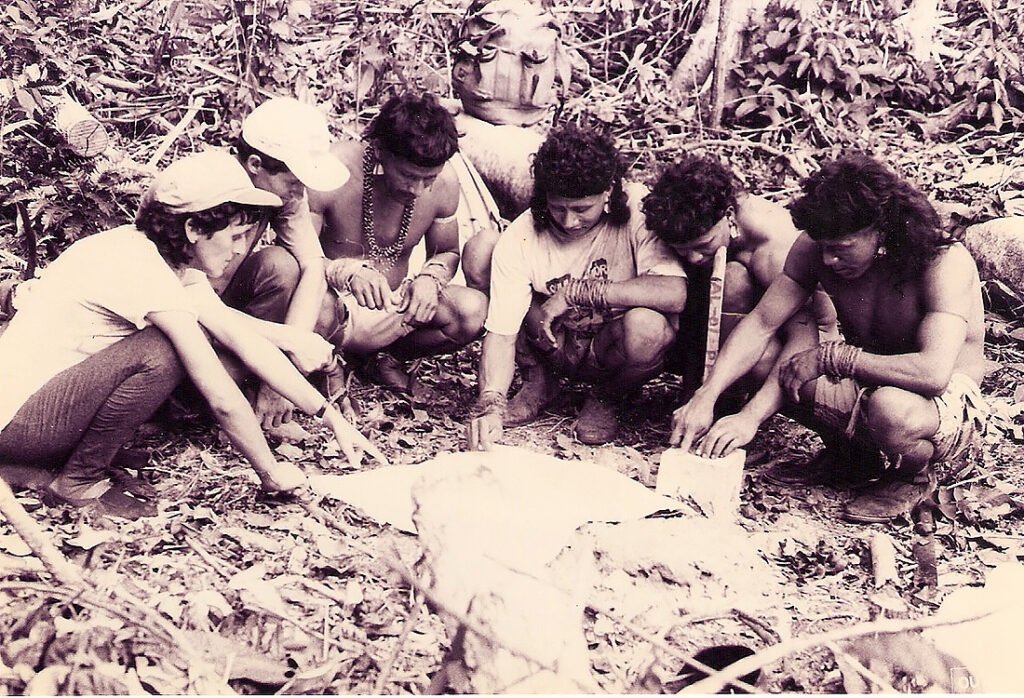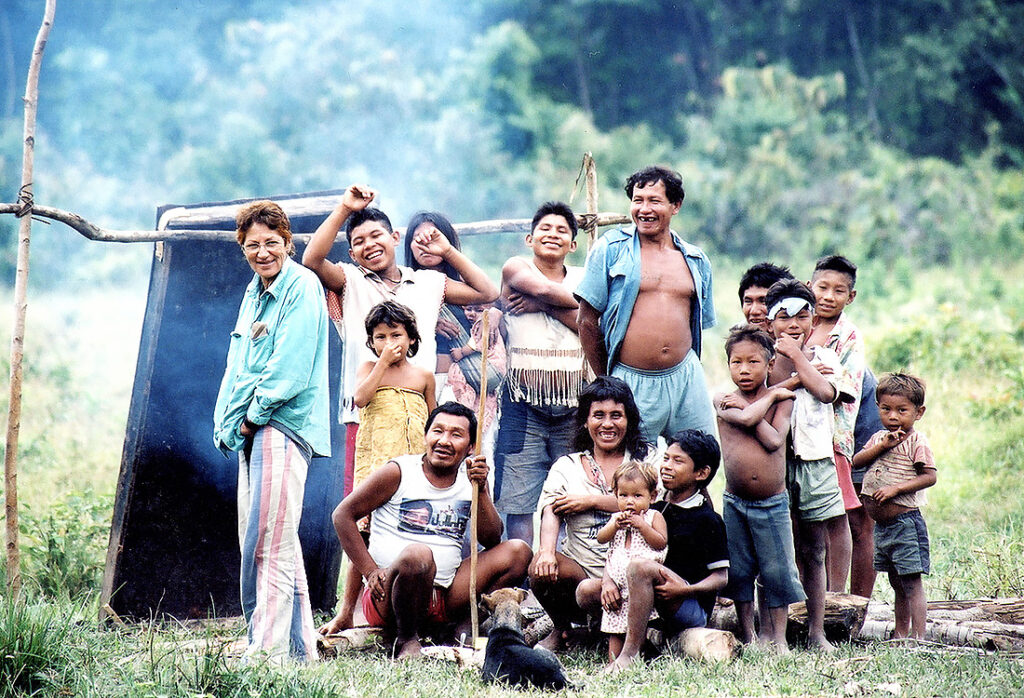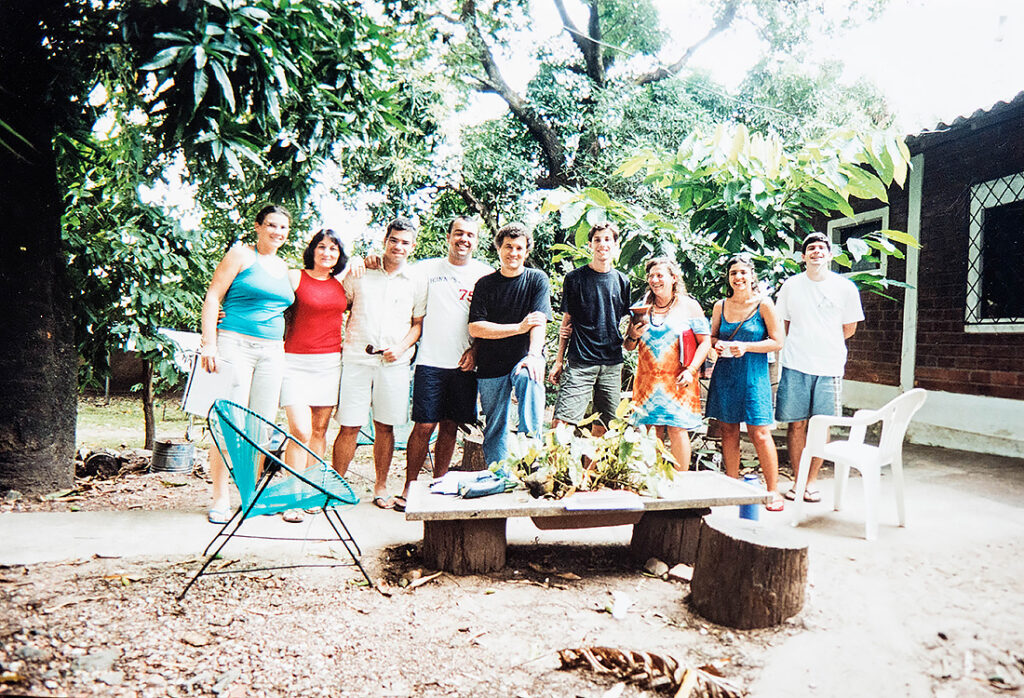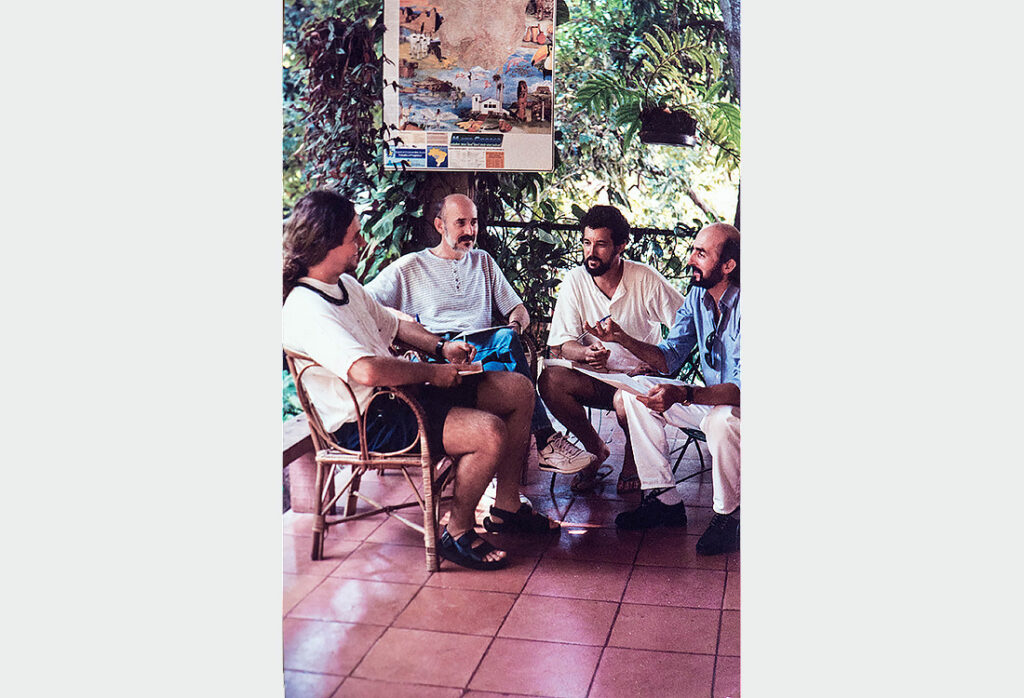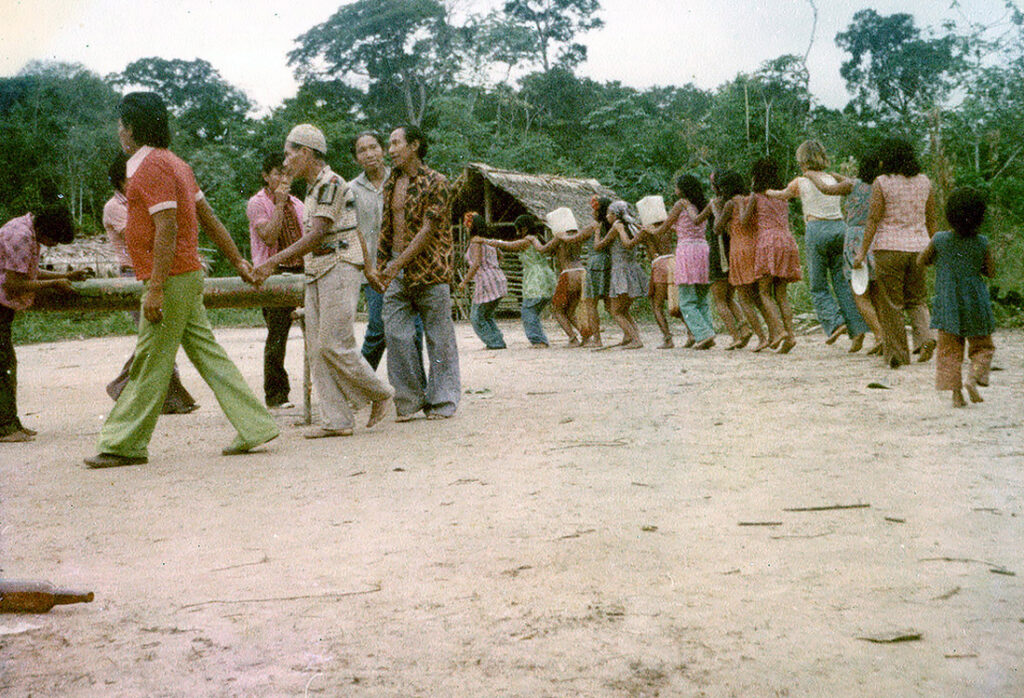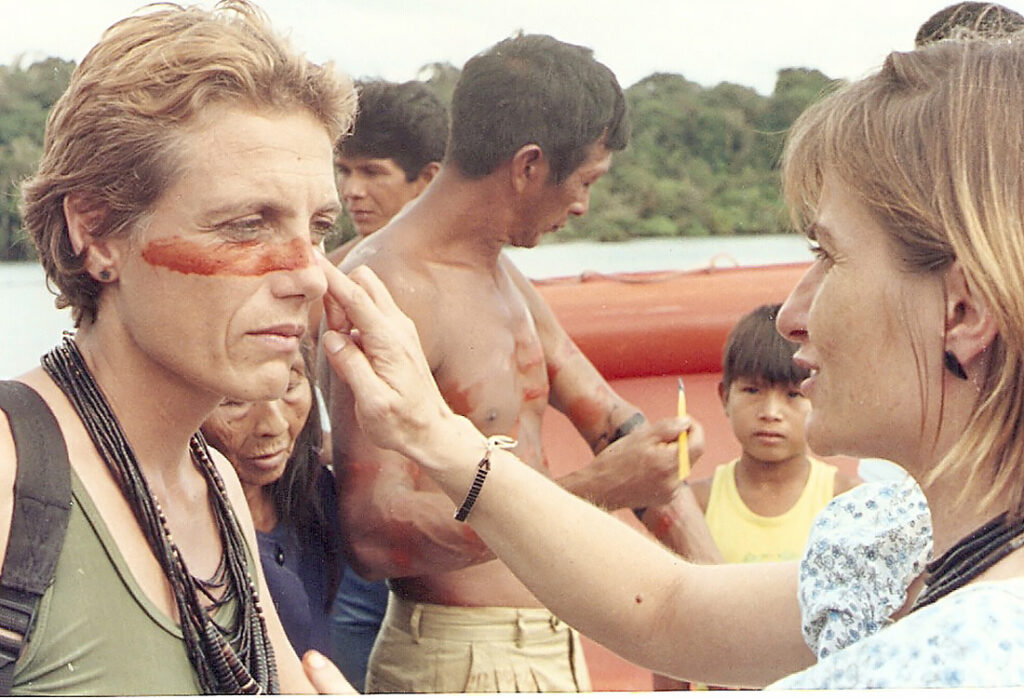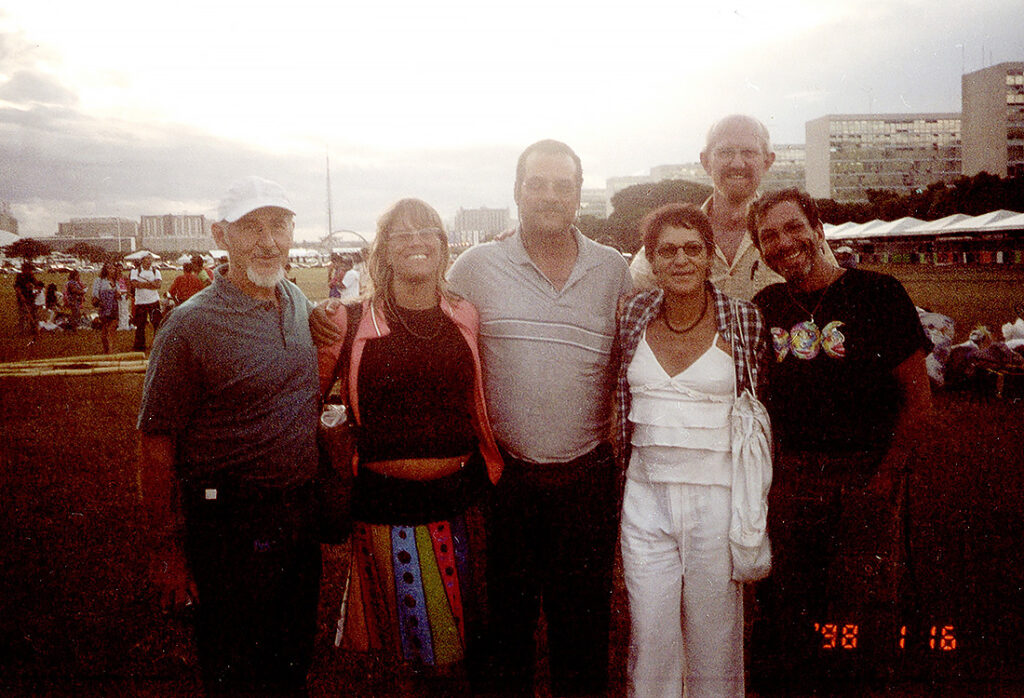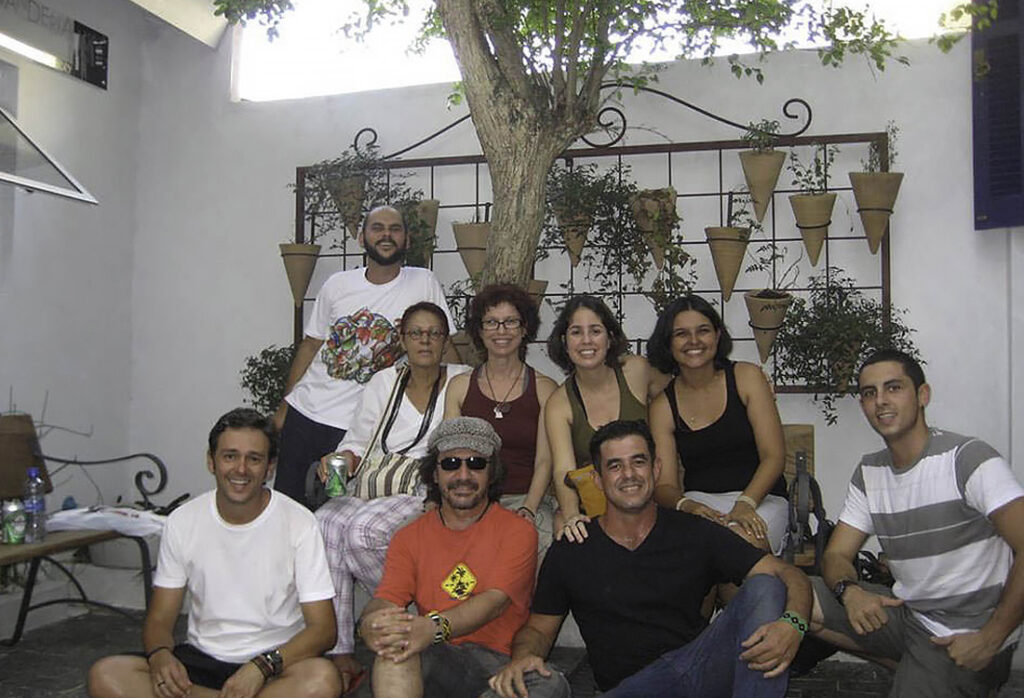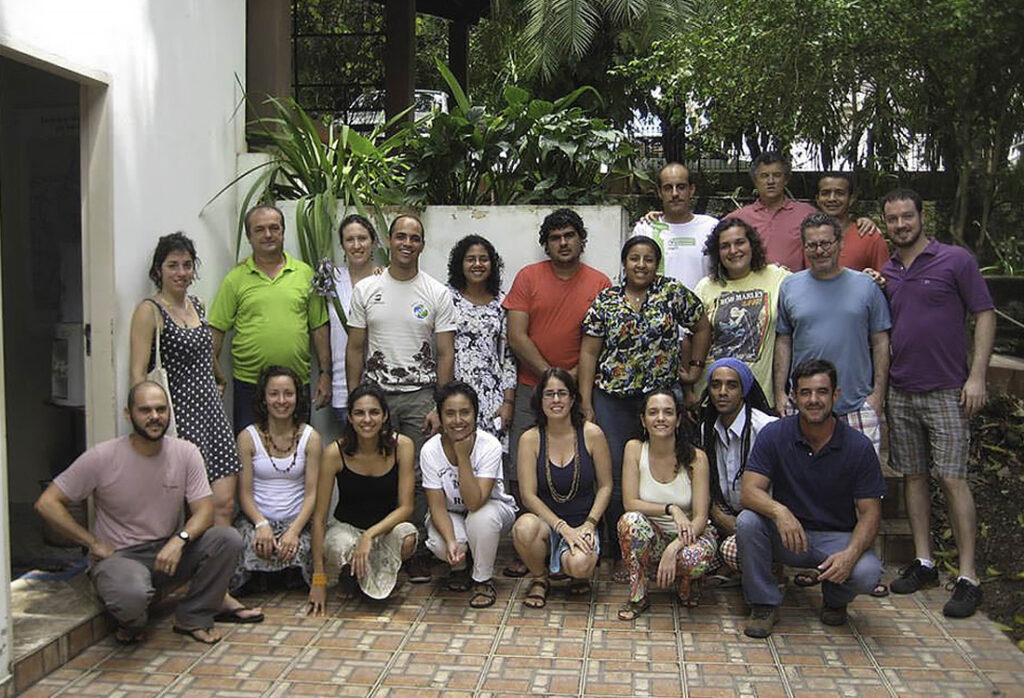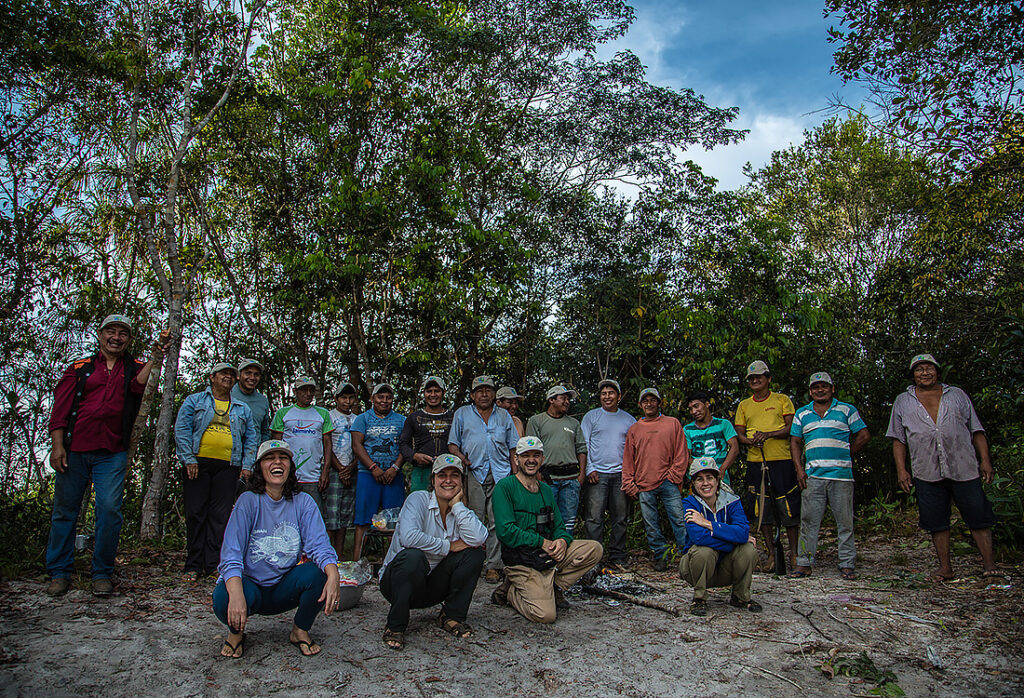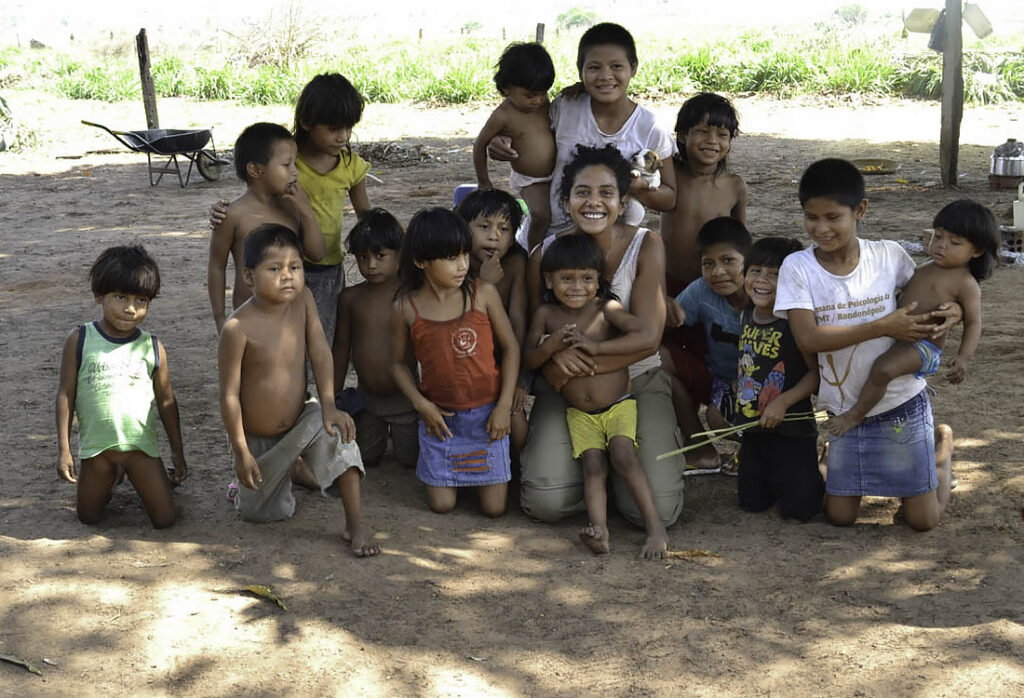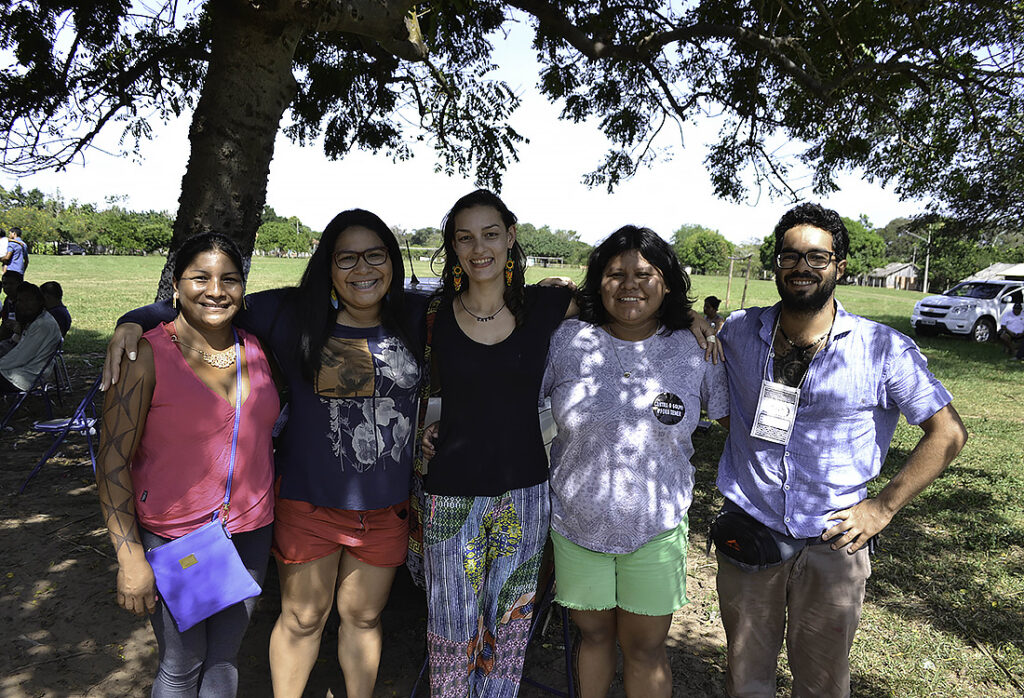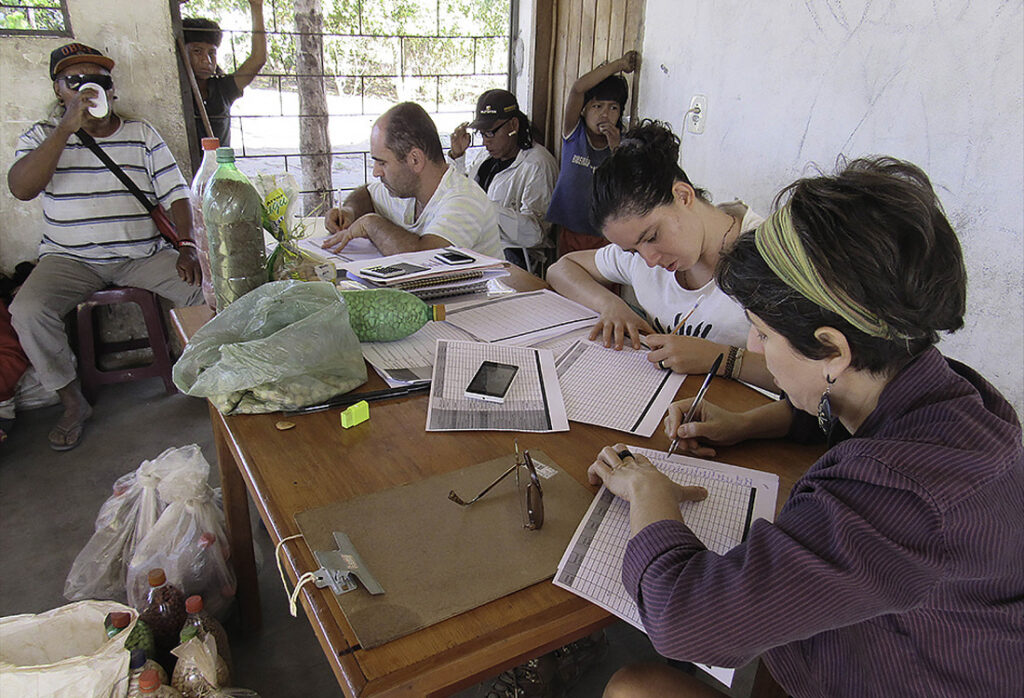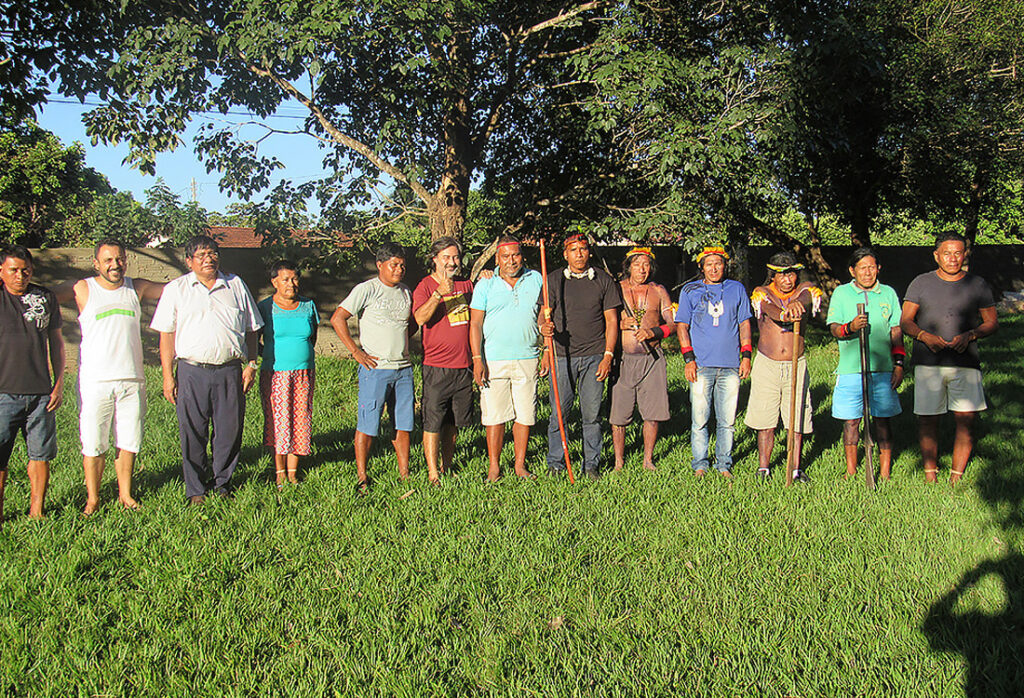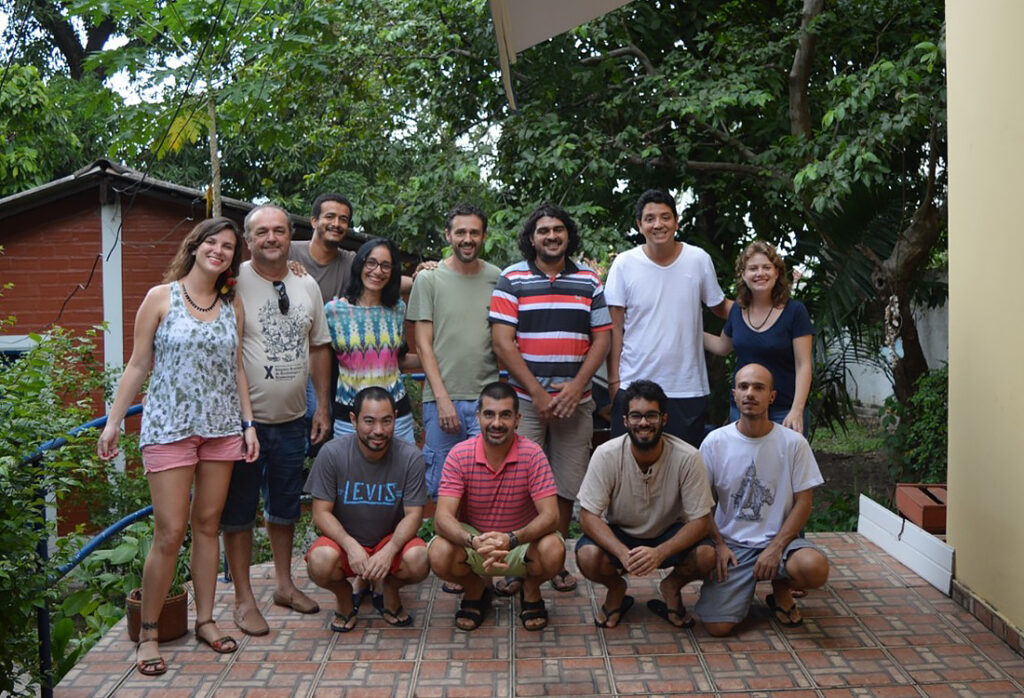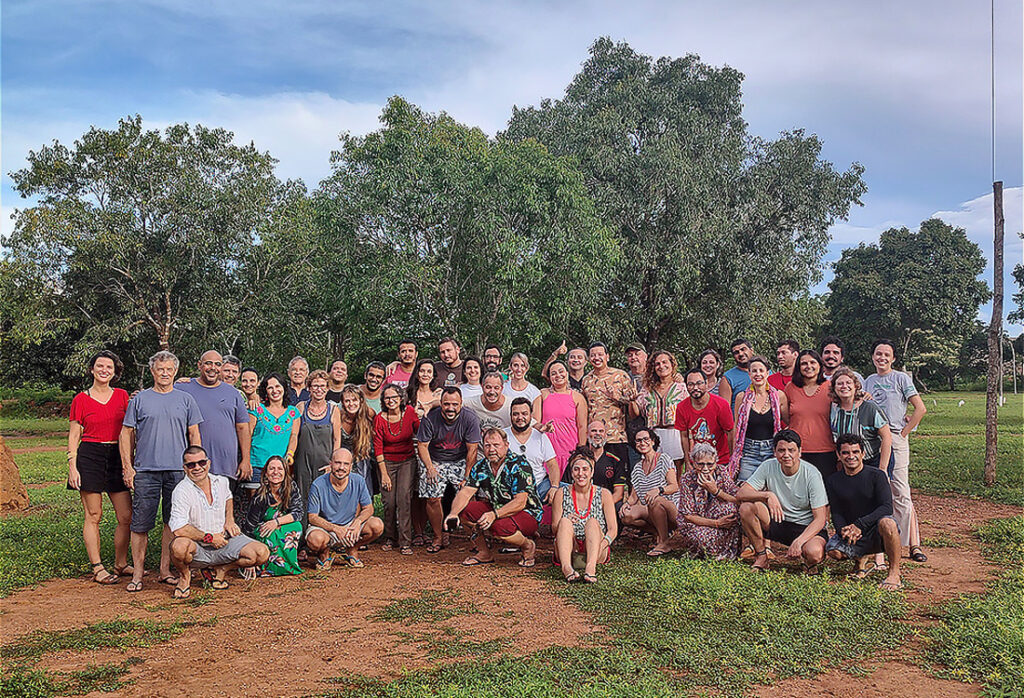OPAN was the first indigenist organization founded in Brazil in 1969
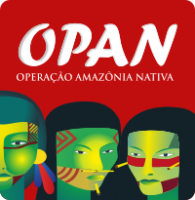
For 56 years, OPAN has worked to strengthen Indigenous leadership at the regional level, valuing their culture and social organization by enhancing the management of their territories and natural resources in an autonomous and sustainable way.
Historically, OPAN’s multidisciplinary indigenist teams have engaged in grassroots work with Indigenous peoples in key areas such as politics, land rights, health, and economics. OPAN’s methodology is rooted in direct action, fostering interaction and involvement in daily village life, ensuring that communities themselves guide the proposals and development of projects.
OPAN’s objectives include the defense of human rights, support for Indigenous peoples and traditional communities, recognition of Indigenous rights, environmental conservation, and the advancement of anthropological, socio-economic, and environmental research. Additionally, OPAN has played a historic role in training Indigenous leaders, offering capacity-building programs in various formats throughout its history.
Since the 1970s, OPAN has supported the organization of the first Indigenous assemblies in Brazil and contributed to the formulation and implementation of Indigenous policies that reflect the interests, needs, and cultural specificities of these communities.
Check out the gallery for a glimpse of our history.
OPAN’s indigenist teams work in several key areas, including land protection through surveillance programs, monitoring, and territorial management. Other efforts include strengthening Indigenous organizations, fostering political education, promoting socio-biodiversity product chains, ensuring food sovereignty, and advancing income generation and sustainable development.
Over the past 54 years, all the Indigenous peoples OPAN has worked with have had their lands demarcated, with self-demarcation experiences proving particularly significant. The organization has played a direct role in securing 13 million hectares of Indigenous lands in Amazonas, working in partnership with the Kulina, Kanamari, Katukina, Deni, Zuruaha, Kanamati/Jarawara, Apurinã, Marubo, Matis, Korubo, Mayoruna, Paumari, Jamamadi, Tenharim, and Parintintim peoples. In Mato Grosso, OPAN has helped defend three million hectares of Indigenous territories alongside the Paresi, Cinta Larga, Arara, Karajá, Kayabi, Enawene Nawe, Nambikwara, Manoki, Myky, and the Xavante of Marãiwatsédé.
Health programs have always been a priority for OPAN, which has worked with specialized teams to control epidemics, train Indigenous technicians, implement immunization programs, and promote the recognition of traditional knowledge and practices. For 12 years, OPAN maintained an agreement with FUNASA, providing high-quality Indigenous health services in the Brasnorte District in northern Mato Grosso.
In education, OPAN played a key role in organizing Indigenous education meetings in the 1980s, bringing together Indigenous teachers and councils that laid the foundation for the public policies in this sector that are now implemented by the Brazilian government.
More recently, OPAN has focused on developing and supporting economic alternatives, strengthening and promoting sustainable management practices in the Amazon Forest and Cerrado (tropical savanna). In addition to fostering economic sustainability, OPAN’s teams work alongside Indigenous communities to critically reflect on consumption patterns and build capacity for adopting management and production technologies.
In recognition of its work, OPAN has received several awards and honors. In 2001, OPAN was recognized by the Mato Grosso State Legislature for its advocacy on behalf of Indigenous peoples. In 2006, it was awarded the Chico Mendes Prize by the Ministry of the Environment (MMA) in the non-governmental organization category for its contributions to the Brazilian Amazon and for expanding Indigenous participation in decision-making processes that impact their way of life. In 2015, the Paumari people’s sustainable pirarucu management initiative in the Tapauá River, Middle Purus, received the National Biodiversity Award, also granted by the Ministry of the Environment. The same initiative was certified as a social technology by the Banco do Brasil Foundation.
Networks and Partners
- Articulação dos Povos Indígenas do Brasil (APIB)
- Associação do Povo Deni do rio Xeruã (Aspodex)
- Associação do Povo Indígena Tenharim do Marmelos (Apitem)
- Associação do Povo Kanamari do rio Xeruã (Aspotax)
- Associação dos Agropecuários de Beruri (Assoab)
- Associação dos Moradores da RDS Uacari (Amaru)
- Associação dos Produtores Agroextrativistas da Colônia do Sardinha (Aspacs)
- Associação dos Produtores Indígenas da Terra Caititu (APITC)
- Associação dos Produtores Rurais de Carauari (Asproc)
- Associação Indígena do Povo das Águas (AIPA)
- Associação Indígena Kolimace (Kolimace)
- Associação Thutalinansu
- Coletivo do Pirarucu
- Conselho Indígena de Roraima (CIR)
- Cooperativa Mista de Desenvolvimento Sustentável e Economia Solidária do Médio Juruá (Codaemj)
- Coordenação das Organizações Indígenas da Amazônia Brasileira (Coiab)
- Federação das Organizações e Comunidades Indígenas do Médio Purus (Focimp)
- Federação dos Povos e Organizações Indígenas do Mato Grosso (Fepoimt)
- Formad
- Garupa
- GT-Infra
- Instituto Centro de Vida
- Observa-MT
- Observatório da BR-319
- Observatório do Clima
- Organização das Mulheres Indígenas Takiná
- Organização dos Povos Indígenas Apurinã e Jamamadi (Opiaj)
- Organização dos Povos Indígenas do Alto Madeira Madeira (Opiam)
- Rede de Cooperação Amazônia (RCA)
- Rede Juruena Vivo
- The Nature Conservancy (TNC)
- Aliança Águas Amazônicas
- Associação dos Comunitários que Trabalham com Desenvolvimento Sustentável no Município de Jutaí (ACJ)
Organizational Chart
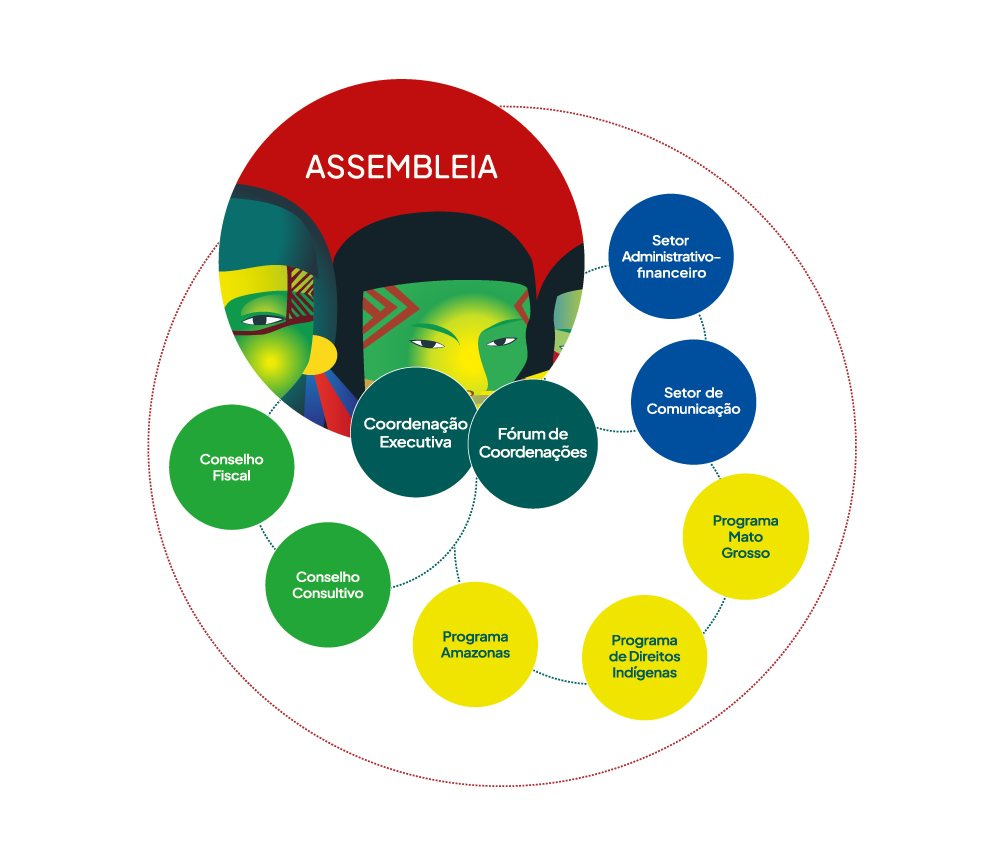
Transparency
OPAN’s administrative and financial processes follow internally decentralized approval flows, ensuring greater security and transparency in every transaction.
On a daily basis, accountability procedures are carried out by OPAN’s members and teams in strict compliance with the guidelines outlined in the Administrative and Financial Manual.
All contracts established by OPAN undergo external audits, and for over 15 years, the entire institution has been audited annually. Internally, the Audit Committee evaluates balance sheets and financial reports for agreements every six months.
These measures have reinforced the proper and efficient management of both institutional operations and project implementation.

